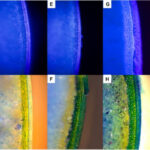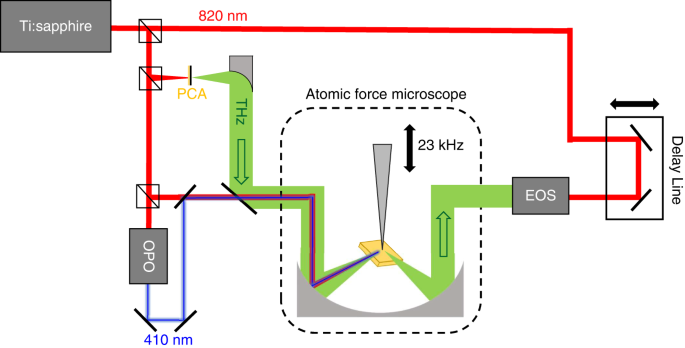国際研究チームは、世界の2400以上の言語における文法的変化のパターンを記録した新しいデータベースを作成しました。 An international team has created a new database that documents patterns of grammatical variation in over 2400 of the world’s languages
2023-04-19 マックス・プランク研究所
Grambankには、2400以上の言語の文法構造のデータが含まれており、言語の共通祖先、認知と使用の制約、および言語接触によって形成された共通点があることが報告された。
Grambankは、215の異なる言語系統と、全ての居住大陸の101の孤立言語をカバーしており、195の文法的特性をカバーしている。Grambankは、言語多様性と人間の文化との関連を探るための貴重なデータベースであり、言語の共通性や限界についての研究に役立つ。
<関連情報>
- https://www.mpg.de/20186271/0418-evan-grambank-shows-the-diversity-of-the-world-s-languages-150495-x
- https://www.science.org/doi/10.1126/sciadv.adg6175
Grambankは、言語多様性に対する系譜的制約の重要性を明らかにし、言語喪失の影響を浮き彫りにしている Grambank reveals the importance of genealogical constraints on linguistic diversity and highlights the impact of language loss
Hedvig Skirgård,Hannah J. Haynie,Damián E. Blasi,Harald Hammarström,Jeremy Collins,Jay J. Latarche,Jakob Lesage,Tobias Weber,Alena Witzlack-Makarevich ,Sam Passmore,Angela Chira ,Luke Maurits,Russell Dinnage ,Michael Dunn,Ger Reesink,Ruth Singer,Claire Bowern ,Patience Epps,Jane Hill‡ ,Outi Vesakoski ,Martine Robbeets,Noor Karolin Abbas ,Daniel Auer,Nancy A. Bakker,Giulia Barbos,Robert D. Borges,Swintha Danielsen,Luise Dorenbusch,Ella Dorn,John Elliott,Giada Falcone,Jana Fischer ,Yustinus Ghanggo Ate ,Hannah Gibson ,Hans-Philipp Göbel,Jemima A. Goodall ,Victoria Gruner,Andrew Harvey,Rebekah Hayes,Leonard Heer,Roberto E. Herrera Miranda,Nataliia Hübler,Biu Huntington-Rainey,Jessica K. Ivani,Marilen Johns,Erika Just ,Eri Kashima ,Carolina Kipf,Janina V. Klingenberg,Nikita König,Aikaterina Koti,Richard G. A. Kowalik,Olga Krasnoukhova,Nora L. M. Lindvall,Mandy Lorenzen,Hannah Lutzenberger,Tânia R. A. Martins,Celia Mata German,Suzanne van der Meer,Jaime Montoya Samamé ,Michael Müller ,Saliha Muradoglu,Kelsey Neely,Johanna Nickel,Miina Norvik ,Cheryl Akinyi Oluoch,Jesse Peacock,India O. C. Pearey,Naomi Peck,Stephanie Petit,Sören Pieper,Mariana Poblete,Daniel Prestipino,Linda Raabe,Amna Raja,Janis Reimringer,Sydney C. Rey,Julia Rizaew,Eloisa Ruppert,Kim K. Salmon ,Jill Sammet,Rhiannon Schembri,Lars Schlabbach,Frederick W. P. Schmidt,Amalia Skilton,Wikaliler Daniel Smith,Hilário de Sousa ,Kristin Sverredal,Daniel Valle,Javier Vera ,Judith Voß,Tim Witte,Henry Wu ,Stephanie Yam,Jingting Ye ,Maisie Yong,Tessa Yuditha,Roberto Zariquiey,Robert Forkel,Nicholas Evans,Stephen C. Levinson,Martin Haspelmath,Simon J. Greenhill,Quentin D. Atkinson and Russell D. Gray
Science Advances Published:19 Apr 2023
DOI:https://doi.org/10.1126/sciadv.adg6175

Abstract
While global patterns of human genetic diversity are increasingly well characterized, the diversity of human languages remains less systematically described. Here, we outline the Grambank database. With over 400,000 data points and 2400 languages, Grambank is the largest comparative grammatical database available. The comprehensiveness of Grambank allows us to quantify the relative effects of genealogical inheritance and geographic proximity on the structural diversity of the world’s languages, evaluate constraints on linguistic diversity, and identify the world’s most unusual languages. An analysis of the consequences of language loss reveals that the reduction in diversity will be strikingly uneven across the major linguistic regions of the world. Without sustained efforts to document and revitalize endangered languages, our linguistic window into human history, cognition, and culture will be seriously fragmented.



